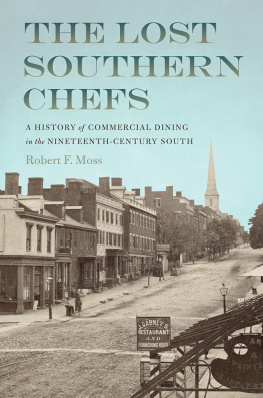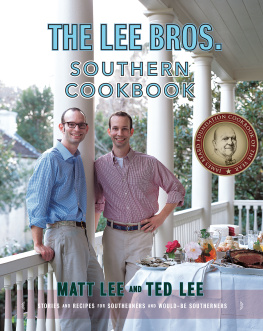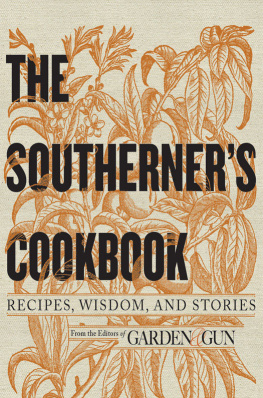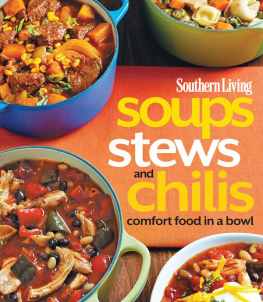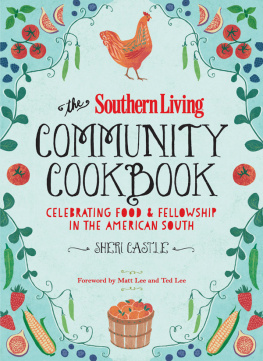Cornbread Nation
Cornbread Nation
The Best of Southern Food Writing
Edited by Francis Lam
General Editor, John T. Edge

Published in association with
the Southern Foodways Alliance
and the Center for the Study of Southern Culture
at the University of Mississippi


Publication of this work was made possible, in part, by a generous gift from the University of Georgia Press Friends Fund.
Acknowledgments for previously published material appear on pages 69, which constitute a continuation of this copyright page.
Published by the University of Georgia Press
Athens, Georgia 30602
www.ugapress.org
2014 by the Southern Foodways Alliance,
Center for the Study of Southern Culture, University of Mississippi
All rights reserved
Designed by Anne Richmond Boston
Set in 10.5 Adobe Minion by Graphic Composition, Inc., Bogart, Ga.
Manufactured by Thomson-Shore
The paper in this book meets the guidelines for permanence and durability of the Committee on Production Guidelines for Book Longevity of the Council on Library Resources.
Most University of Georgia Press titles are available from popular e-book vendors.
Printed in the United States of America
18 17 16 15 14 P 5 4 3 2 1
ISBN: 978-0-8203-4666-3 (pbk. : alk. paper)
ISBN: 978-0-8203-4695-3 (e-book)
ISSN: 2333-4940 (print)
ISSN: 2333-4967 (e-book)
Contents
Francis Lam
Daniel Patterson
Susan Orlean
Sara Roahen
Edward Lee
Eddie Huang
As told to Sara Wood by Ida MaMusu
Kathleen Purvis
As told to Sara Wood by Argentina Ortega
Nikki Metzgar
Todd Kliman
Burkhard Bilger
John T. Edge
Barry Estabrook
Gabriel Thompson
Besha Rodell
Jane Black
Bill Heavey
Dan Baum
Jonathan Miles
Robb Walsh
As told to Francis Lam by Sue Nguyen
Julia Reed
Robert Moss
Kevin Young
Rayna Green
Sen McKeithan
Sarah Hepola
Lolis Eric Elie
Ann Taylor Pittman
Jack Pendarvis
Jeffrey Steingarten
As told to Amy Evans by Mary Louise Nosser
Langston Hughes
Jessica B. Harris
Patricia Smith
Stephen A. Crockett Jr.
John Jeremiah Sullivan
Monique Truong
Brett Anderson
Courtney Balestier
As told to Amy Evans by Joe St. Columbia
Lucille Clifton
Joe York
Jake Adam York
Cornbread Nation
Introduction
Francis Lam
In my younger, more offensive years, I used to say that Michigan was the Souths northernmost state, on account of the popularity of pickup trucks and country music. I also thought any state that started with a vowel was probably dispensable, and for proof, I would start with Alabama, Arkansas.
What enabled me to such opinions? A privileged, cosmopoli-vincial upbringing in New Jersey.
We were, of course, normal. And our normalness was modern, urban, and worldly. By the 1980s, our shopping malls had Japanese sushi! (Made by Chinese people.) And Greek gyros! (Made by machines.) I thought then that the South was backward and closed minded and in love with Billy Ray Cyrus.
I lived in my actively ignorant state for years, blithely casting aspersions on places and people I knew nothing about. I grew up some, eventually, and did the equally-abstract-180 thing: Wait, I dont know anything about the South. How can I hate it? Um now I should love it! I fetishized soul food and barbecue; I talked about the greatness of rock-and-roll bands from Chapel Hill. I went around self-righteously shaming anyone who talked disparagingly of rednecks before I had met anyone who could have reasonably been called one.
And here I am, many more years after that, welcoming you to an anthology of Southern food writing. Past editions of Cornbread Nation have been edited by the likes of John Egerton, Lolis Elie, Ronni LundySoutherners of consequenceso this is a responsibility that is deep and serious.
My own words were included in the last edition of Cornbread Nation. It was a story about meeting a retired Cajun shrimper in Mississippi, who confessed that he resented the Vietnamese people working the waters he grew up on, but who also offered me, an Asian stranger, a standing invitation to come over for crawfish. He was generous and tough, lovely and complicated, and I met him, Mr. Leroy, while I was living on and off in his hometown of Biloxi, Mississippi.
I was brought there by recovery work after the storm, which we all called Hurricane Katrina, and I stayed because Id fallen in love. With a woman, in particular, but also with a community, a place with a sense of its own place. My neighbors, like Mr. Leroy, or like Sue Nguyen, or like Fofo Gilich, or like Lucille Bennett were Cajun, Croatian, Caribbean, white, brown, black, yellow; they were all Biloxians.
I once asked Miz Loren, who sold vegetables under the highway overpass, how a Barbadian like herself ended up in Biloxi. I didnt end up in Biloxi, she said. You end up somewhere when you try to go somewhere else and find youre not welcomed there. I came to Biloxi.
I tell that story about Loren all the time. It makes me think of her, but just as much, it makes me think of how schooled I have been by the South, how my old ideas of what the South was stopped mattering when I started actually getting to know Southerners. It makes me think of the richness Ive found once I started becoming an honorary Southerner: richness of character, richness of spirit. Richness of story, richness of place.
That richness is generous and tough, lovely and complicated. There is beauty, but not always. Outsiders assumptions usually dont play out, changing our field of vision. But sometimes they do, solidifying stereotypes. I know my share of Southerners who now live here in New York City. When Southerners leave the South, they bring their identities along, but the South they bring with them bobs and weaves, bends and melts, sometimes turning into something altogether different than what they knew back home.
This collection of stories, essays, and reportage comes from those shifting perspectives (and through the tireless work of Sara Camp Arnold, John T. Edge, and Amy Evans). I originally thought I would concentrate the collection on stories of outsiders coming to the South. But soon, because the South isnt some hermetically sealed bubble that may or may not include Kentucky, I saw that it needed to include stories of Southerners as they move through the world, changing it as it changes them. (And, honestly, some pieces we included just because we loved reading themforty-something selections in, youve got to let your hair down a little bit.)
In Come In and Stay Awhile we hear from and about adventurers, wanderers, immigrants, and, yes, some people who ended up in the South. Sara Roahen, originally a woman of Wisconsin with delicate Californian produce sensibilities, struggles with the hock-fisted pummeling that vegetables get in her adopted home of New Orleans. Daniel Pattersona writer so brilliant it seems almost a shame he insists on being a world-class chefshows us a sepia Miami of Jewish settlers. Susan Orlean paints a different Miami for us, this one of a community weaving itself around an unforgotten past in Cuba. We hear from chef and cultural critic Eddie Huang on the awkwardness and anger of the immigrant, and about the Houston chef Chris Shepherd, whose mission is to make people see and taste the gifts of those immigrants.
Next page



